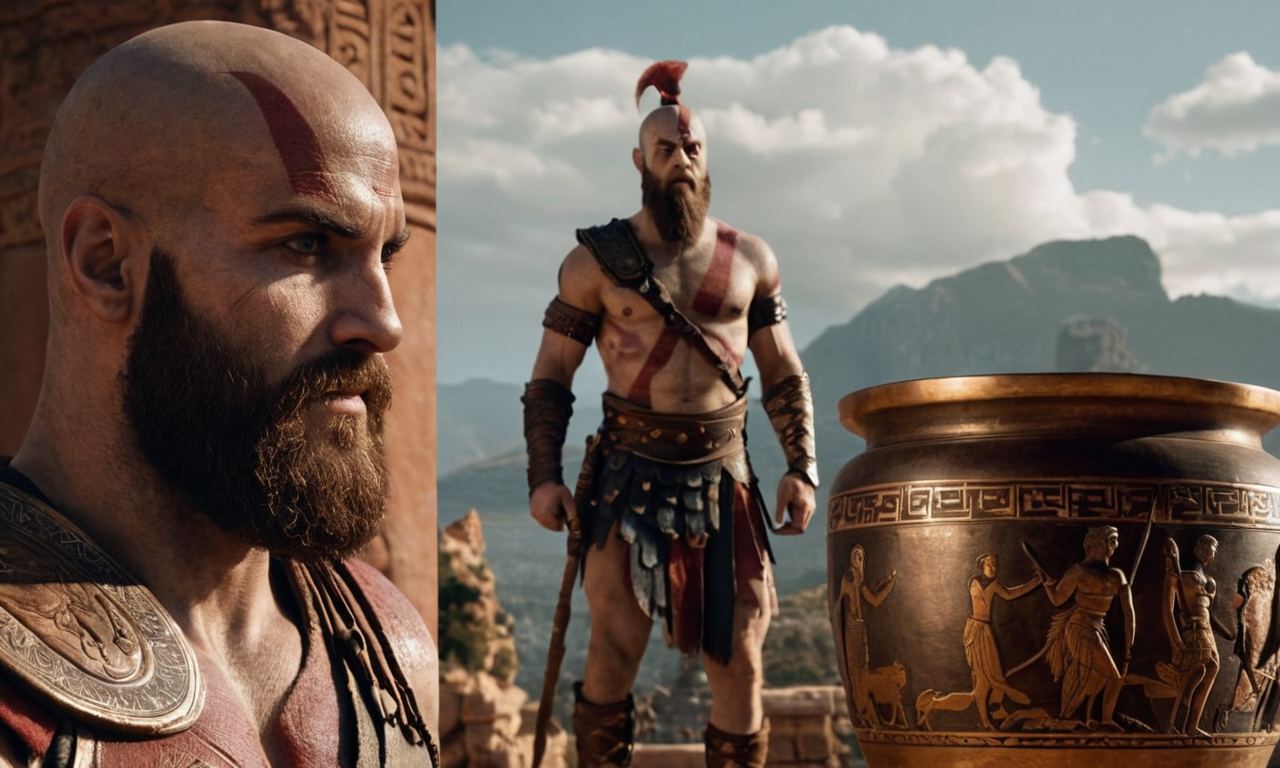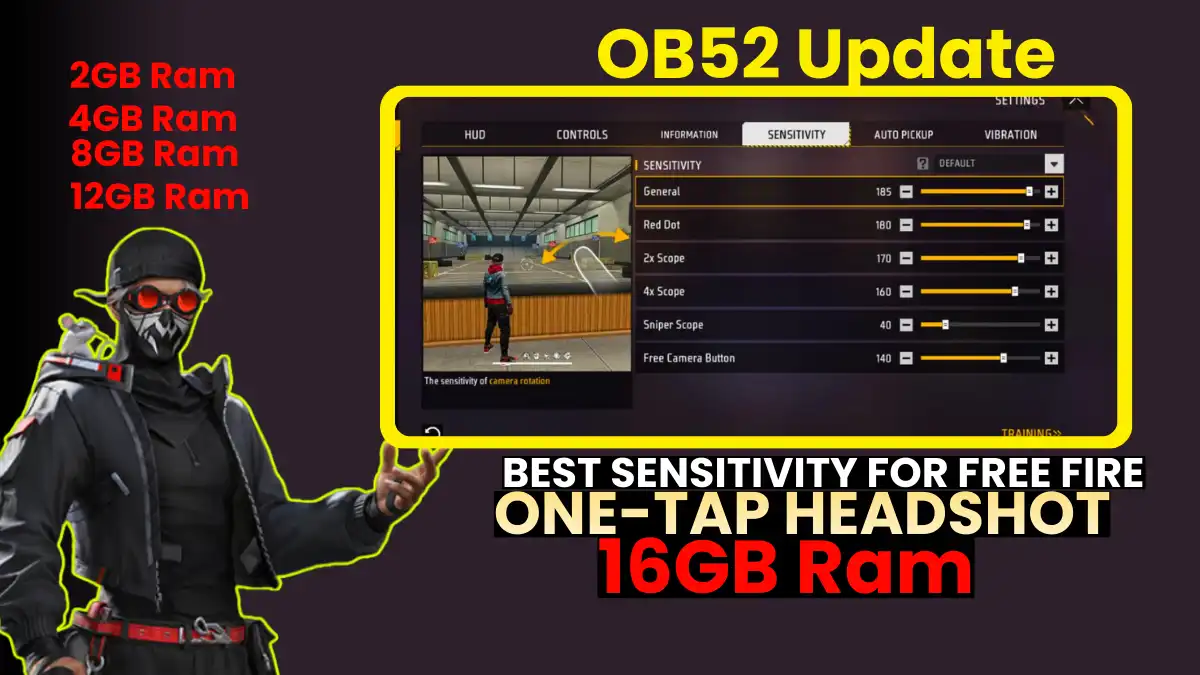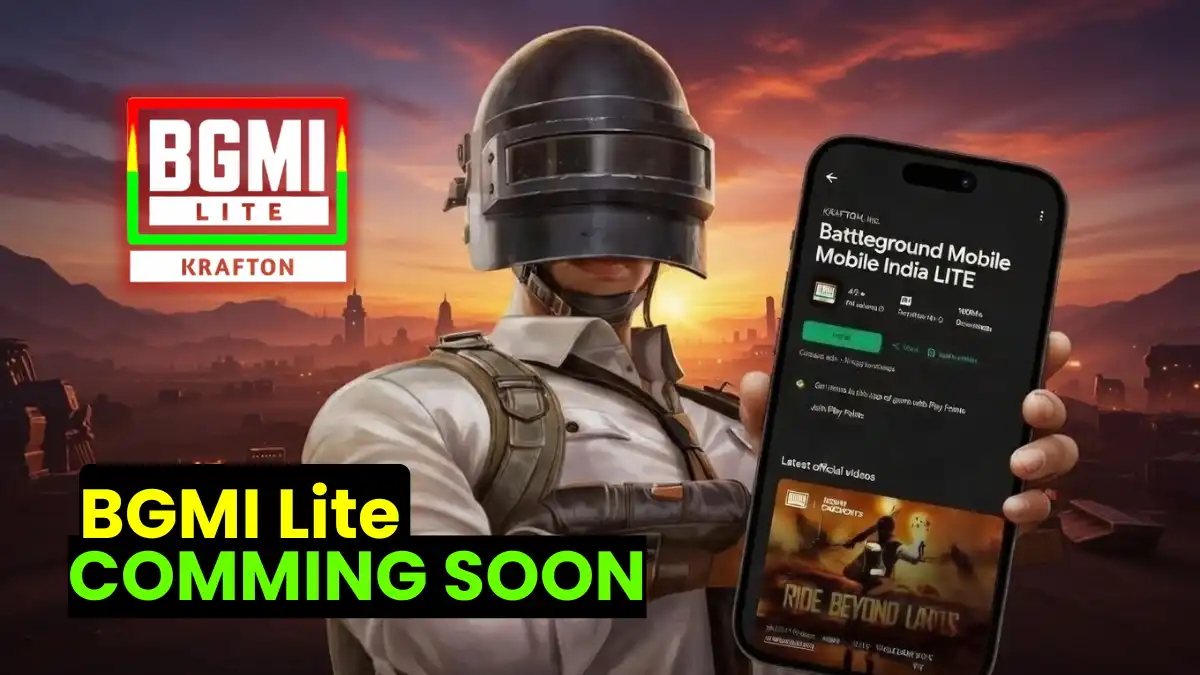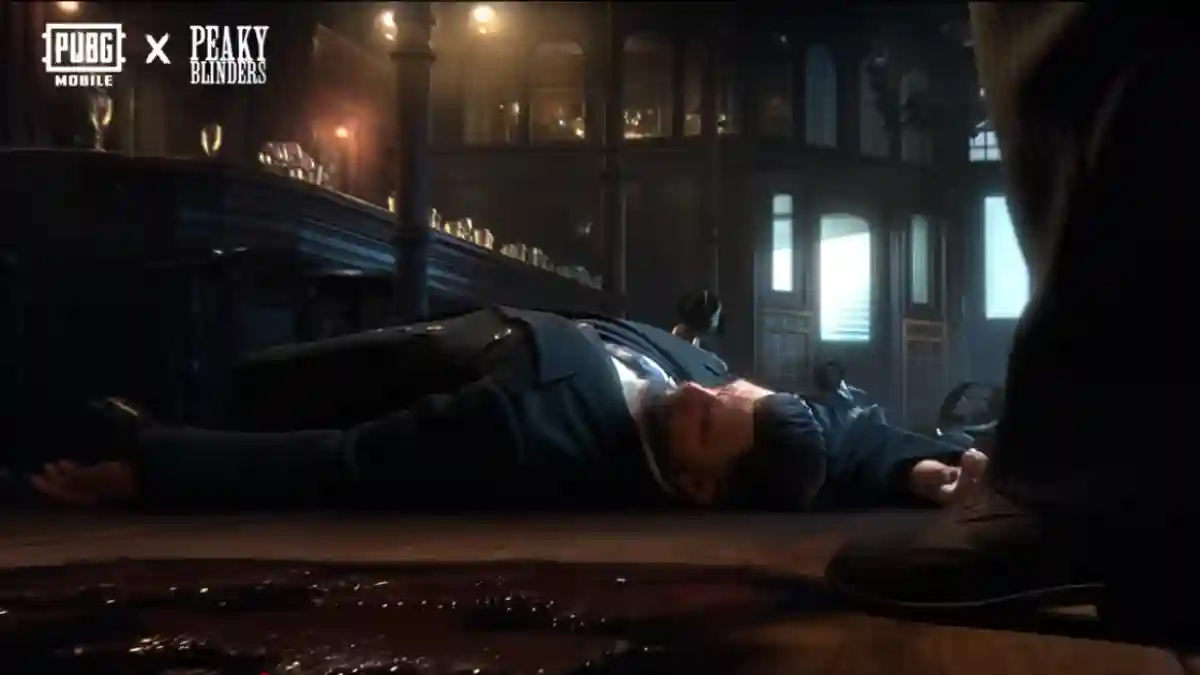Ever wondered if the badass Kratos from the “God of War” series has roots in actual Greek mythology? Spoiler alert: he does, but with some fascinating twists. Since its debut in 2005, “God of War” has become a cultural phenomenon, selling over 51 million copies worldwide as of 2023 . This epic franchise has captivated gamers with its intense action and deep dive into Greek mythology, blending ancient myths with modern storytelling. Let’s dive into the world of ancient myths and modern gaming to see how the mythological Kratos and the video game icon compare.
The Mythological Kratos
Origins and Role in Greek Mythology
Kratos in Greek mythology is a lesser-known deity who personifies strength and power. He’s the son of the Titan Pallas and the nymph Styx. Unlike the complex and conflicted character we see in the games, the mythological Kratos is pretty straightforward—he’s all about raw power and enforcing Zeus’s will.
Appearance in Prometheus Bound
Kratos makes a memorable appearance in Aeschylus’s play “Prometheus Bound.” Here, he’s depicted as a brutish enforcer, ensuring Prometheus gets his eternal punishment for giving fire to humans. Kratos isn’t the sympathetic type; he’s all about supporting Zeus’s harsh justice, pushing the blacksmith god Hephaestus to be as cruel as possible.
Personification of Strength and Power
In myths, Kratos isn’t a god you’d pray to. He’s more of a concept—a personified embodiment of strength and authority. His very name means “strength” or “power” in Ancient Greek, which fits his role perfectly. He’s not a hero, but an enforcer, representing the might and unquestionable authority of Zeus.
Relationship with Zeus
Kratos is completely loyal to Zeus, serving as his right-hand enforcer. This loyalty is unwavering, making Kratos a symbol of Zeus’s control over both gods and mortals. He’s a character without much personal ambition, existing mainly to carry out Zeus’s commands.
Also Read Disney Dreamlight Valley: Cooking Up a Feast!
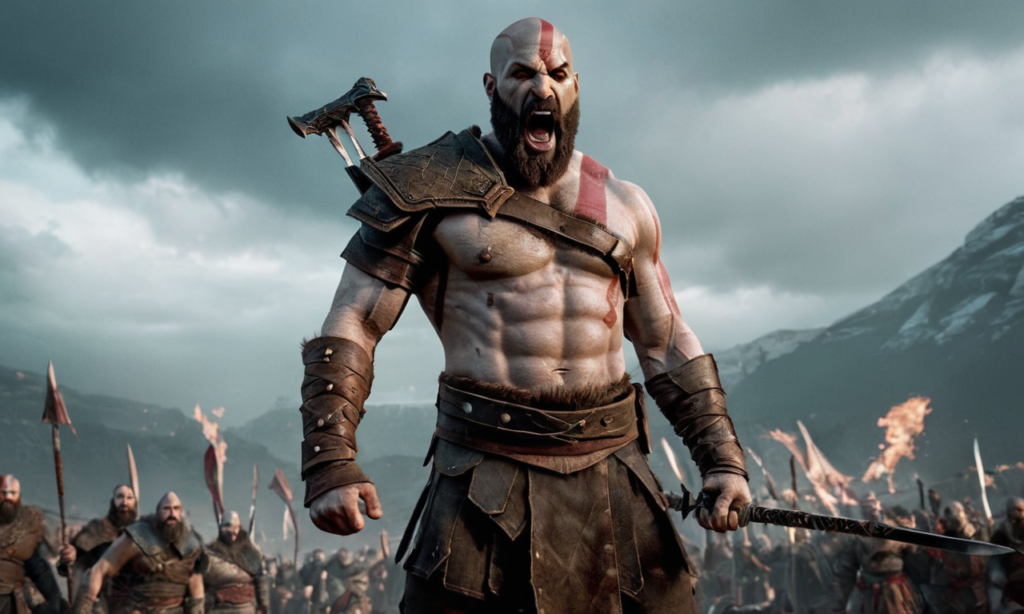
God of War’s Kratos
Creation and Development
The Kratos we know from “God of War” wasn’t initially meant to echo his mythological namesake. The game developers chose the name for its meaning—strength. It wasn’t until later that they realized they’d stumbled upon a real mythological figure, which turned out to be a happy accident.
Character Traits and Attributes
Game Kratos is a blend of traditional Greek heroism and modern anti-hero traits. He’s marked by intense rage, driven by personal tragedy, and infamous for his brutal path of vengeance. Unlike the mythological Kratos, the game’s Kratos is a deeply complex character, wrestling with his inner demons and a desire for redemption.
The Tragic Hero Archetype
Kratos fits the mold of a tragic Greek hero perfectly. His story is marked by the gods’ influence, similar to figures like Heracles. Both heroes suffer immense personal loss and face monumental challenges. However, while Heracles seeks redemption through his labors, Kratos opts for a bloody and relentless quest for revenge.
Comparison with Heracles
Kratos’s journey bears a strong resemblance to Heracles more than his mythological counterpart. Just as Heracles is tricked by Hera into killing his family, Kratos is deceived by Ares. But instead of seeking forgiveness, Kratos’s path is one of fury and retribution, which makes for a gripping game narrative.
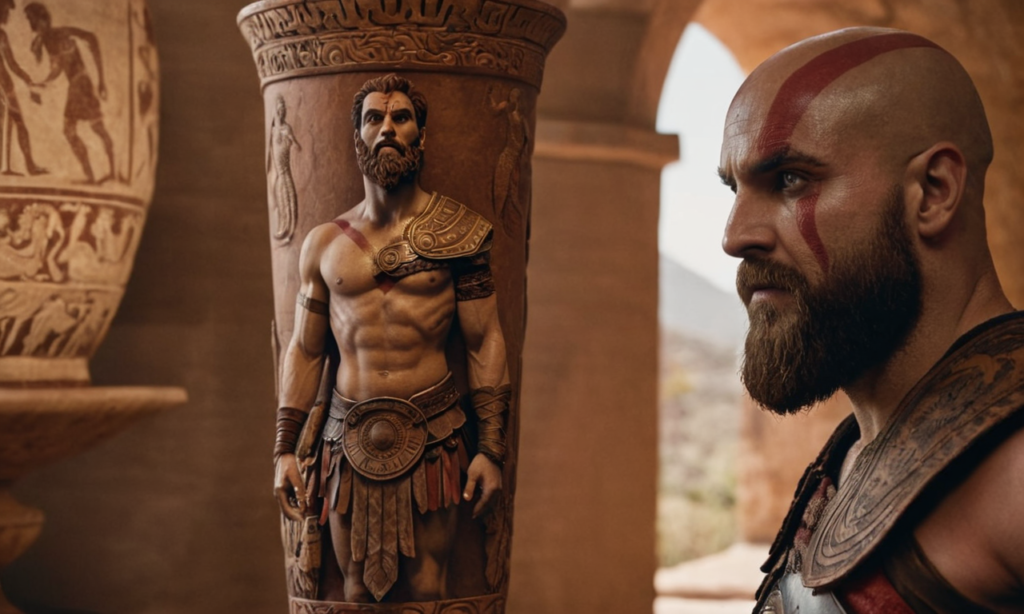
Similarities and Differences
Shared Traits and Themes
Strength and Brutality
Both versions of Kratos share an association with immense strength and a tendency towards brutal actions. They are fearsome and relentless, embodying the raw, violent power that their name signifies.
Tragic Heroism
Tragedy is a common thread. The mythological Kratos is part of Zeus’s ruthless enforcement, a role not free from moral complexity. Game Kratos, on the other hand, is a tragic hero whose life is a testament to suffering and relentless determination.
Key Differences
Mythological Loyalty vs. Game’s Rebellion
Mythological Kratos is loyal to Zeus, never questioning his role. Game Kratos starts as a pawn of the gods but ultimately rebels against them, seeking to break free from their control and forge his own path.
Interaction with Other Mythological Figures
In “God of War,” Kratos directly interacts with many mythological figures, sometimes killing them, which is a significant deviation from traditional myths. His encounters add depth and drama to the game, making him a central figure in the retelling of Greek mythology.
The Evolution of Kratos in the Game Series
Original Trilogy’s Depiction
The original “God of War” trilogy introduces us to a rage-fueled Kratos on a quest for vengeance against the gods. His story is one of brutal action and relentless pursuit of those who wronged him.
2018 Soft Reboot and Mature Adaptation
The 2018 reboot takes a more mature approach. Kratos, now in the realm of Norse mythology, is older, wiser, and dealing with fatherhood. This evolution adds layers to his character, showing growth and a deeper understanding of his past actions.
Final Confrontation and Self-Liberation
Over the series, Kratos moves from being a pawn of the gods to breaking free from their control. His journey is one of self-discovery and liberation, contrasting sharply with his mythological counterpart’s unwavering loyalty.
Cultural and Narrative Impact
Reception of Brutality in Both Mediums
While the game faced criticism for its violent content, it’s worth noting that Greek mythology itself is filled with brutal and tragic tales. Kratos’s story, though violent, is a modern reflection of these ancient narratives.
Kratos as a Modern Mythological Figure
Kratos has become a cultural icon, embodying the tragic hero in a way that resonates with contemporary audiences. His complex character bridges ancient myths with modern storytelling, making Greek mythology accessible and engaging.
Influence on Contemporary Understanding of Greek Mythology
Through “God of War,” many players have gained an interest in Greek mythology. The series, while taking creative liberties, has sparked curiosity and a deeper appreciation for these ancient stories.
Conclusion
Kratos from “God of War” and his mythological counterpart share the essence of strength and tragic heroism but differ greatly in their narratives and roles. The game’s Kratos, a blend of mortal vulnerability and godly wrath, brings ancient myths to life in a way that is both fresh and deeply rooted in classical themes. Whether you’re a fan of the games or Greek mythology, Kratos’s story is a powerful exploration of strength, tragedy, and the quest for redemption.

